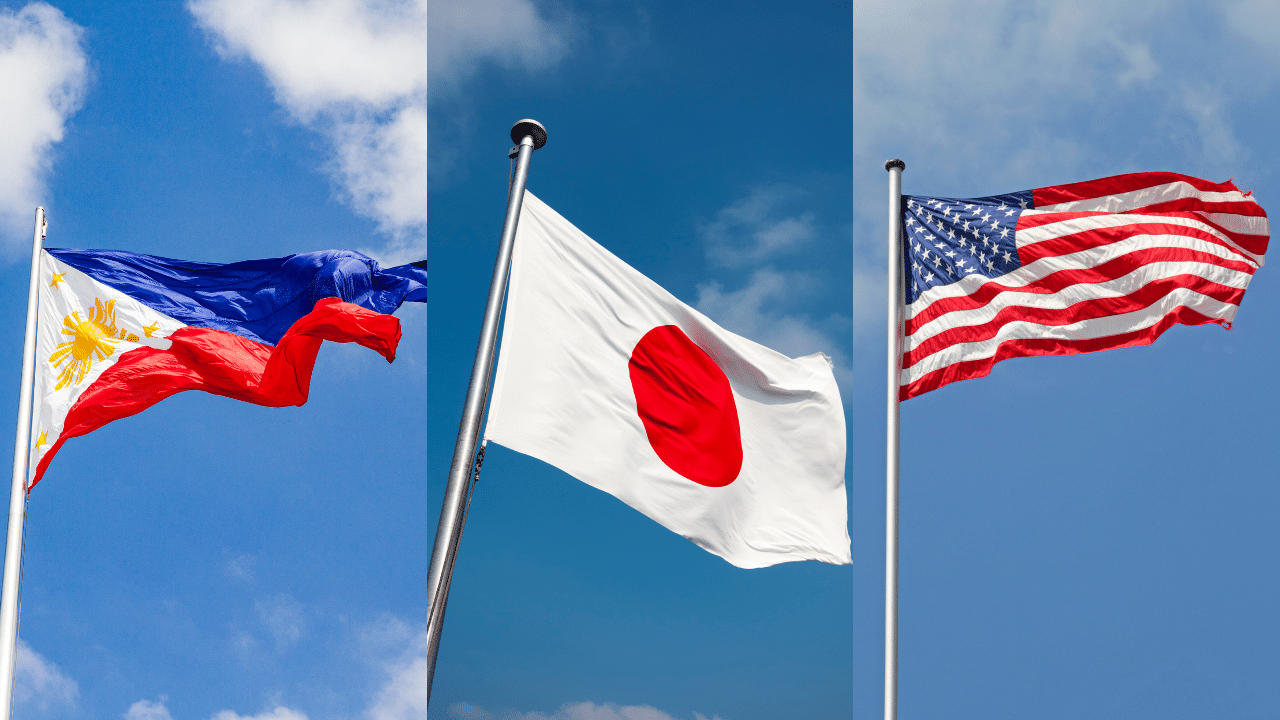MANILA, Philippines — The Philippines entered into another trilateral cooperation with the United States and Japan last week to work against economic coercion by third-party countries.
According to the US Department of State on Friday, delegations from the three countries held an “informal trilateral discussion” in Manila on the same day.
The discussion revolved around building each other’s economic resilience independently to counter “economic coercion” done by other countries.
READ: PH, US, Japan vow cooperation to enhance cyber, digital resilience
The state department, however, did not mention any countries they claim to be doing “economic coercion” to Manila, Washington or Tokyo.
“The participants shared their concern over and strong opposition to economic coercion and a commitment to building economic resilience,” US state department spokesperson Matthew Miller said in a statement.
“They also affirmed that the three countries intend to cooperate to raise awareness of this issue among the international community and enhance their resilience to and response capabilities to potential economic coercion,” Miller added.
The dialogue was chaired by Ma. Corazon Halili-Dichosa, executive director for Industry Development Services at the Board of Investments of the Philippines.
The US delegation was led by Jonathan Fritz, chief of staff to Jose Fernandez, the undersecretary for economic growth, energy and the environment at the state department.
The Japanese delegation was led by Mochizuki Chihiro, director for economic security policy at the Ministry of Foreign Affairs.
The cooperation comes a week after the three allies also went into a cybersecurity operation on Oct. 18 on the sidelines of the 9th Singapore International Cyber Week.
In this dialogue, trilateral cooperation in cyberspace was discussed such as civilian cybersecurity capacity building, cybersecurity workforce development, maritime cybersecurity and information sharing.
The three also discussed enabling trusted flow of data across borders and continued efforts to advance the Global Cross-Border Privacy Rules Forum through cyber and digital capacity building opportunities among them.
